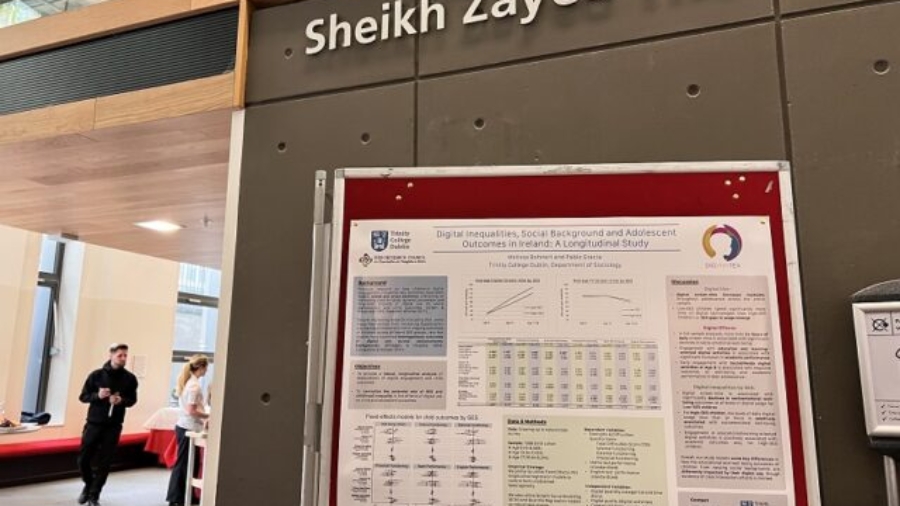A poster prepared by the EU-funded DIGYMATEX Project partners Melissa Bohnert and Pablo Gracia from Trinity College Dublin, Department of Sociology, received special recognition as one of five finalists for the RC28 Conference on Social Stratification and Mobility, which took place on 21-23 April 2022 (Poster Award recognition).
The finalists were chosen from 60 scholars who presented their posters at the event, hosted by the department of Social Policy at The London School of Economics. The RC28 conference (ISA) is internationally recognised as the leading sociological forum for the study of social inequalities and social mobility. Scholars in the field were invited to submit abstracts on “Social Stratification and Social Policy for a Post-Covid19 World” at this international conference.
DIGYMATEX is developing tools such as The DYMI (Digital Youth Maturity Index) and DiGYou3 programs that will provide accurate insights about the long-term effects of digital device use on the maturity and behaviour of children from the ages of 9 to 18.
The research conducted by Bohnert and Gracia is based on rich longitudinal data to examine the associations of digital engagement with child outcomes.
The study incorporates teens’ digital engagement, digital activities and their well-being across multiple developmental stages. By examining the dynamics of adolescents’ socio-emotional well-being and educational outcomes over the years, DIGYMATEX is designing innovative evidence that will provide relevant tools for teens on using digital devices in ways that can foster their mental, physical, and emotional wellbeing.
In their study, Bohnert and Gracia focus on the role of parents’ socioeconomic background to investigate how digital engagement intersects with young people’s well-being. While Bohnert and Gracia’s research is in progress, their preliminary results presented at the conference suggest that:
- Digital screen-time increases markedly throughout adolescence across all socio-economic status groups.
- Lower Socioeconomic Status (SES) children spend significantly more time on digital technologies than high-SES children, with a clear emergence of SES gaps in digital usage.
- More than 3+ hours of daily screen-time is associated with significant declines in socio-emotional well-being.
- Education and learning- oriented digital activities are associated with significant increases in academic performance (in particular maths).
- Low-SES children are more negatively harmed in their socioemotional and educational outcomes by using digital devices, while high-SES children benefit relatively more from a moderate use of digital devices.
This study has clear policy implications. While it has been well documented how social inequalities in family resources and children’s well-being have increased with the Covid-19 crisis, DIGYMATEX’S innovative research will highlight differences in exactly the links between children’s digital use and their well-being across different social backgrounds.
This study will globally link with the work of other partners form DIGYMATEX in providing new tools to understand the determinants of adolescents’ digital maturity and well-being in contemporary societies.

